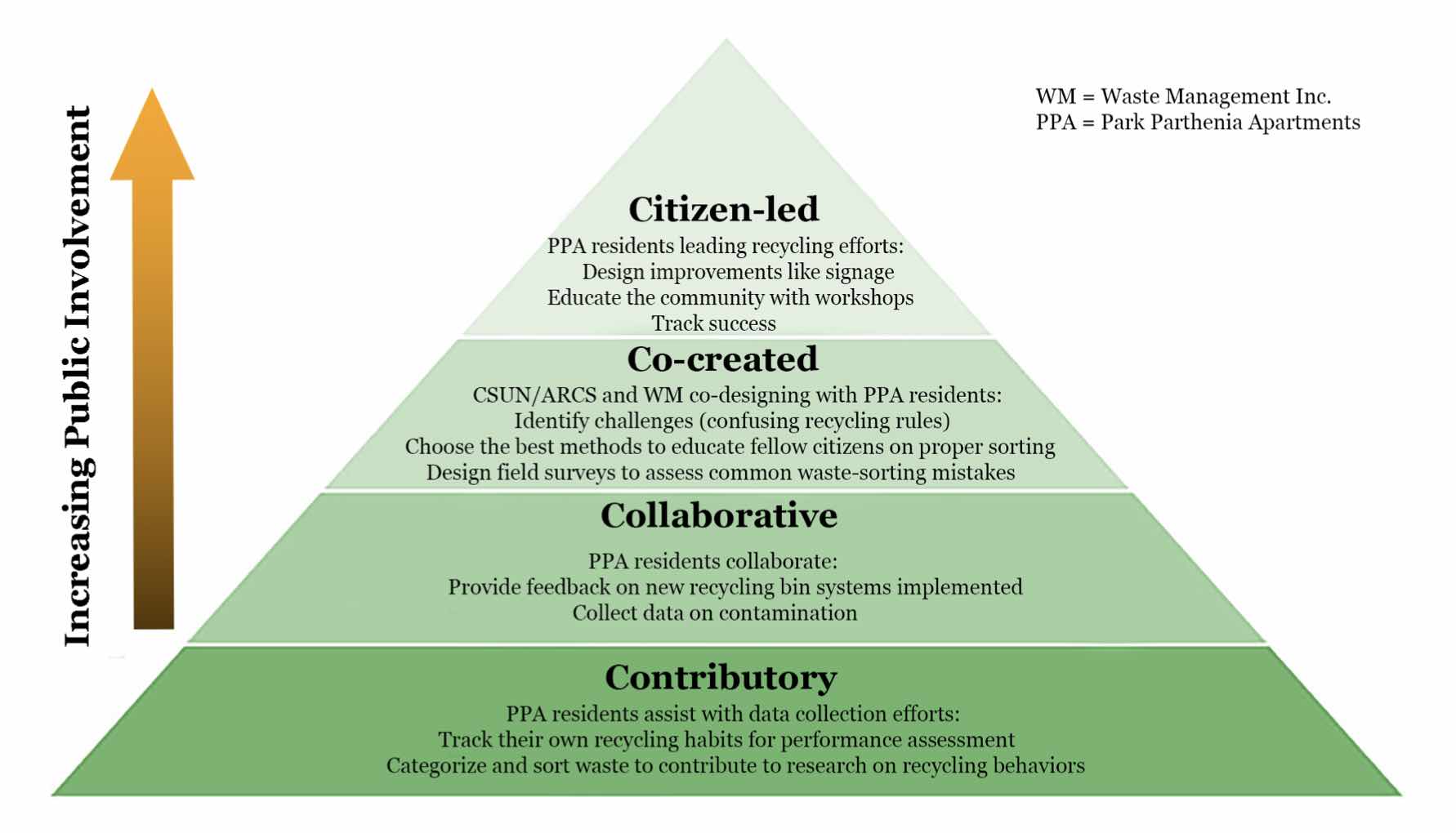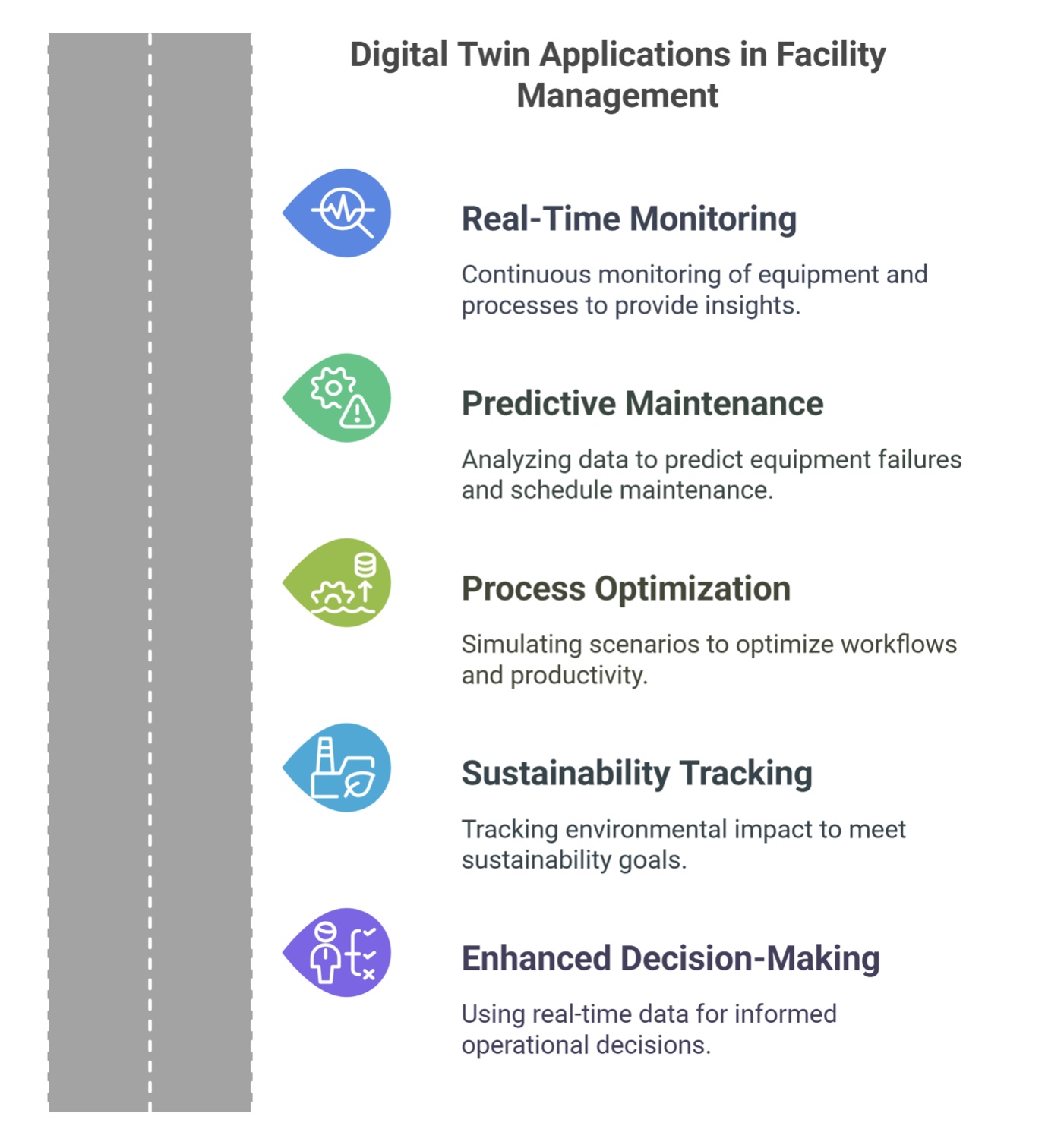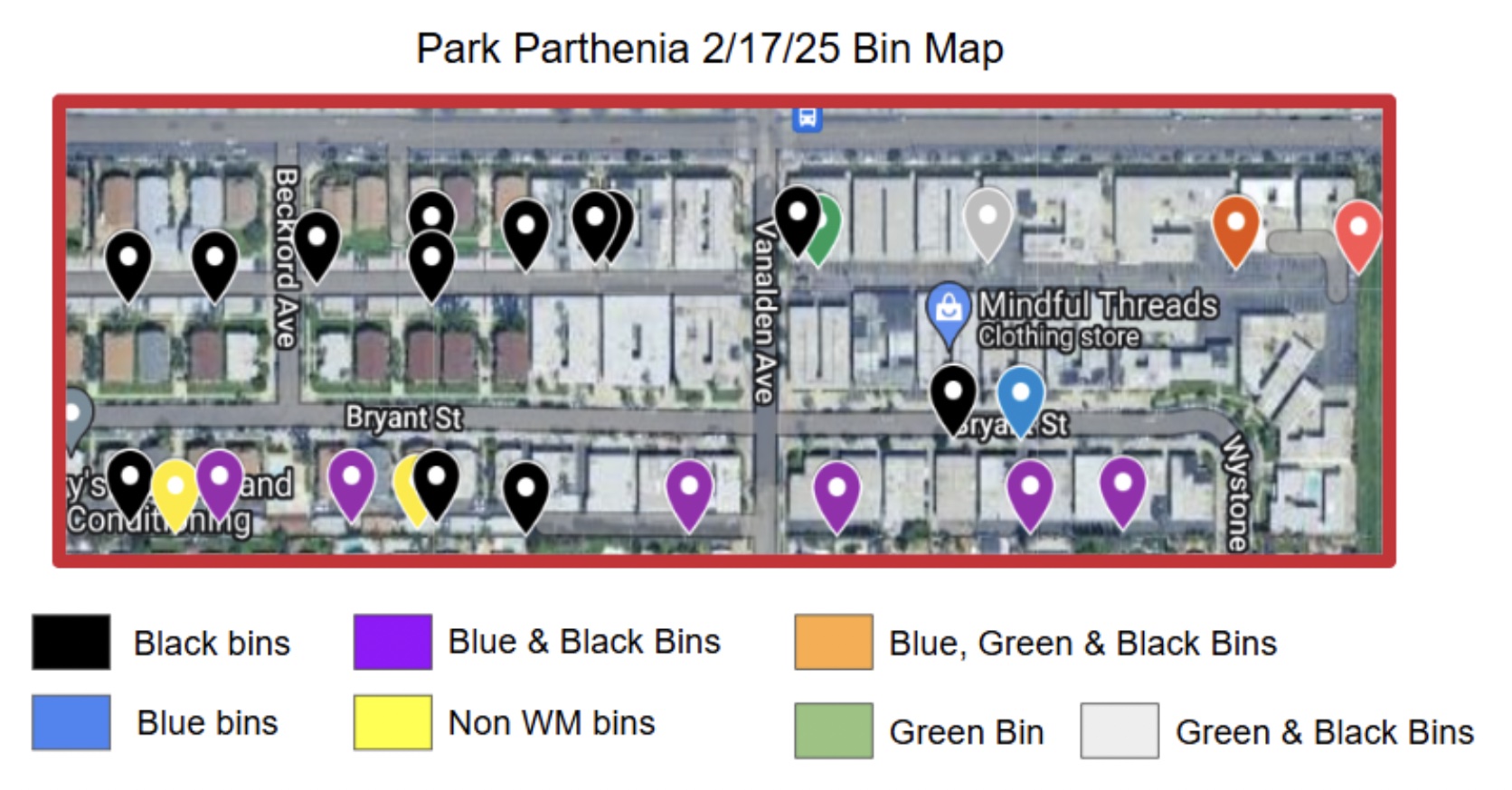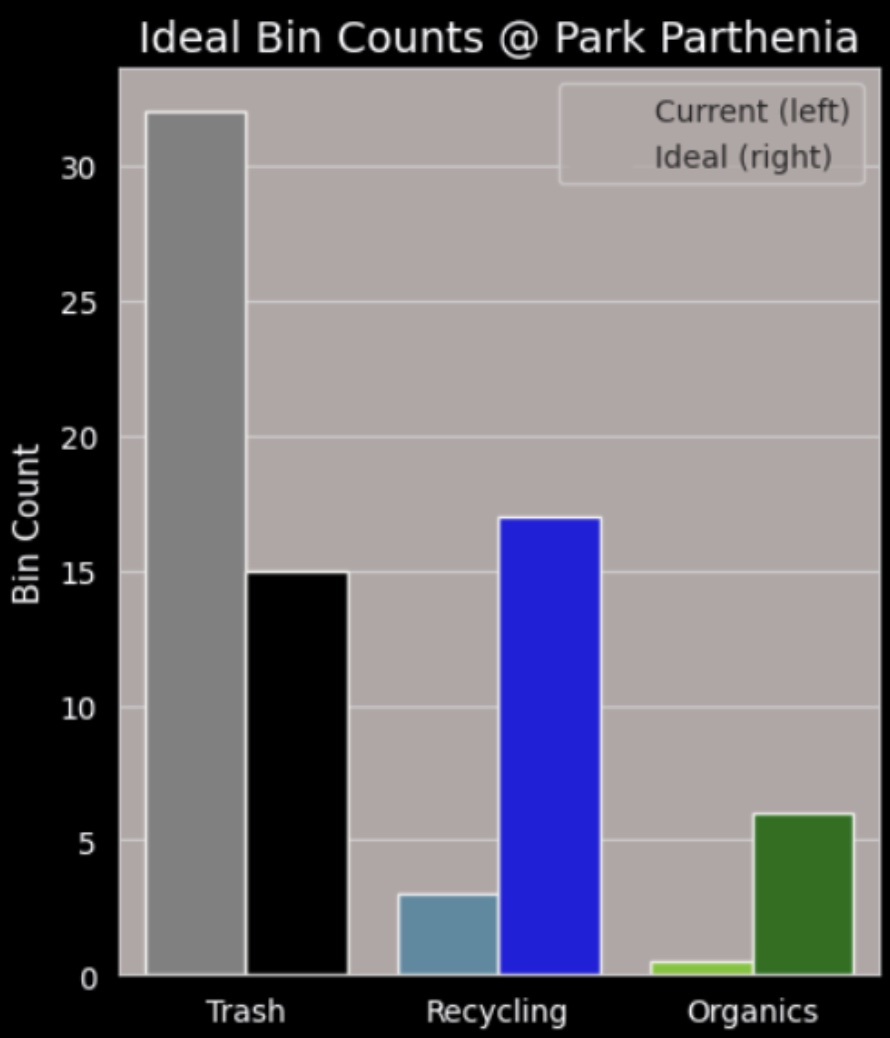Research Project
RecyKOOL: Maximize Waste Diversion Through Citizen Science, Data Analytics and AI Digital Twin
Research Team
Lead Researchers:
- Eugene Tseng, Autonomy for Sustainability Lead
- Dr. Nhut Ho, Professor in Mechanical Engineering
- Dr. Bingbing Li, Professor in Manufacturing Systems Engineering
Collaborators:
- WM (Waste Management)
- Mike Hammer (President – Southern California Area, Waste Management of California, Inc.)
- Kimberly Ohrt (Government Affairs)
- Mark Grady (Regional Recycling Manager)
- Kevin Vaughn (Operations Manager)
- Saul Avila (Operations Manager)
- Jose Figuera (Process Engineer)
- Park Parthenia Apartments
- Jose Portillo (Park Parthenia Business Manager)
- LAPD Devonshire PALS: Police Activity League Supporters
- Mike Lehron (Executive Director)
- Jose Portillo (Board Member)
- Los Angeles Department of Water and Power
- Maria Sison-Roces (Utility Service Manager)
Student Team:
- Cesar Aranibar David, MS in Manufacturing System Engineering
- Reza Alisamir, MS in Manufacturing System Engineering
- Crystal Valdez, BA Student in Psychology
- Anthony Derderian, BA Student in Political Science
- Andrew Garcia Leopold, BS Student in Computer Science
- Stanislav Kazhar, BS Student in Computer Science
- Nik Khandandel, MS in Manufacturing System Engineering
- Julius Maxwell, BS Student in Anthropology
- Shreyas William, MS Student in Engineering Management
- Monish Ramesh, MS Student in Industrial Engineering
- Arpitha Pradeep, MS Student in Engineering Management
- Yuliana Cruz, BA Student in Spanish
- Jeffrey Vasquez Ceron, BA Student in Sociology
- Jessica Reyes, BS Student in Computer Science
- Jean Paul Collazo Arguedas, MS Student in Data Science
Funding
- Funding Organization: Waste Management Inc.
SYNOPSIS
- Co-create awareness, education, and motivation within communities to increase participation in proper waste management.
- Implement citizen and community science projects in local communities.
- Increase recycling and decrease landfill use.
- Reduce food waste and hunger in communities.
- Decrease methane emissions from landfills.
Abstract
Citizen science empowers community members to contribute scientific data, which directly informs AI digital twins—virtual models of systems- as they take in data. These digital twins simulate and optimize Material Recovery Facility (MRF) processes and identify areas for improvement.
By combining citizen-driven data with AI simulations, it’s feasible for residents, the MRF and the environment to benefit from. This collaborative approach aims to foster lasting sustainable practices and serve as a scalable model for other urban areas.
Motivation/Research Problem
Bins often fill up too quickly or contain the wrong materials, making recycling and compost separation more difficult. Another issue is signage—some bins are missing labels or have unclear instructions, leading to confusion about proper waste disposal. Keeping residents informed is an ongoing effort, as regular reminders are needed to ensure proper sorting of trash, recyclables, and compost.
Contamination is when incorrect items are placed in the wrong bin and slows down recovery efforts and reduces the amount of recyclable material that can be processed. At the Materials Recovery Facility (MRF), improper waste sorting creates AI and processing challenges, leading to downtime, maintenance repairs, and increased labor costs. By improving waste sorting, we can increase recovery rates and reduce environmental harm.





Research Questions and Research Objectives
- Increase Participation, Recycling Literacy and Community Involvement
- Increase Diversion (Recycling and Organics)
- Decrease Contamination
- Reduce Solid Waste Generation
- Effectuate Long Term Behavioral Change
- Local Ambassadors
- Increase Operations Uptime
- Increase Recovery
- Decrease Disposal
- Increased Safety
- Optimize Operations
- Integrated Operations and Business Data Analytics
- Maximize Profits
Research Methods
Step 1: Problem Identification and Awareness
Action: Identify the current challenges facing proper waste sorting—including organics, trash, and recycling—at Park Parthenia Apartments.
Objective: See what is working, what is missing and what is not working.
Step 2: Community Engagement through Citizen Science
Action: Leverage Citizen Science, where community members collaborate using scientific methods to address recycling challenges. Conduct ongoing surveys to assess current knowledge and waste-sorting practices, involving residents in the survey design to ensure relevance and effectiveness. Evaluate existing outreach and educational materials, as well as WM’s Ambassador Program, to identify areas for improvement. Additionally, explore strategies to motivate residents through positive reinforcement and incentives, refining these approaches based on community feedback and participation.
Objective: Empower residents to actively contribute to improving waste sorting practices and overall recycling outcomes that effectuate long term behavioral change.
Step 3: Process Optimization with AI Digital Twin
Action: Implement an AI digital twin—a virtual model of recycling processes.
Objective: Simulate operations, detect issues, predict machinery performance, and optimize Material Recovery Facility (MRF) workflows.
Step 4: Data Analysis and Recommendations
Action: Analyze comprehensive collected data to identify insights and challenges.
Objective: Develop recommendations to inform the development and implementation of systematic improvements aimed at optimizing waste diversion and recycling participation.
Step 5: Adaptive Monitoring and Evaluation Program
Action: Establish a monitoring and evaluation program structured around the Plan, Do, Check, Act cycle.
Objective: Ensure continuous improvement of WM initiatives through
real-time tracking and the ongoing refinement of strategies.
Research Results and Deliverables
- Co-create new paradigms with communities for organic waste reduction and increased recycling rates and reduction in waste generation
- Implement AI digital twin for predictive waste tracking.
- Co-create successful educational models for communities citywide.
- Develop tracking and measurement models to assess improvements over time.
Commercialization Opportunities
- Create models for communities and businesses to reduce fines due to waste contamination, thereby lowering costs and maximizing savings.
- Digital Twins deployed in other Material Recovery Facilities (MRFs) to enhance scalability for conducting digital optimization of the processing line.
- Help California meet greenhouse gas reduction goals and implement SB 1383.
Research Timeline
Start Date: Summer 2024
End Date: TBD
Lead Researchers:
- Eugene Tseng, Autonomy for Sustainability Lead
- Dr. Nhut Ho, Professor in Mechanical Engineering
- Dr. Bingbing Li, Professor in Manufacturing Systems Engineering
Collaborators:
- WM (Waste Management)
- Mike Hammer (President – Southern California Area, Waste Management of California, Inc.)
- Kimberly Ohrt (Government Affairs)
- Mark Grady (Regional Recycling Manager)
- Kevin Vaughn (Operations Manager)
- Saul Avila (Operations Manager)
- Jose Figuera (Process Engineer)
- Park Parthenia Apartments
- Jose Portillo (Park Parthenia Business Manager)
- LAPD Devonshire PALS: Police Activity League Supporters
- Mike Lehron (Executive Director)
- Jose Portillo (Board Member)
- Los Angeles Department of Water and Power
- Maria Sison-Roces (Utility Service Manager)
Student Team:
- Cesar Aranibar David, MS in Manufacturing System Engineering
- Reza Alisamir, MS in Manufacturing System Engineering
- Crystal Valdez, BA Student in Psychology
- Anthony Derderian, BA Student in Political Science
- Andrew Garcia Leopold, BS Student in Computer Science
- Stanislav Kazhar, BS Student in Computer Science
- Nik Khandandel, MS in Manufacturing System Engineering
- Julius Maxwell, BS Student in Anthropology
- Shreyas William, MS Student in Engineering Management
- Monish Ramesh, MS Student in Industrial Engineering
- Arpitha Pradeep, MS Student in Engineering Management
- Yuliana Cruz, BA Student in Spanish
- Jeffrey Vasquez Ceron, BA Student in Sociology
- Jessica Reyes, BS Student in Computer Science
- Jean Paul Collazo Arguedas, MS Student in Data Science
Funding
- Funding Organization: Waste Management Inc.
